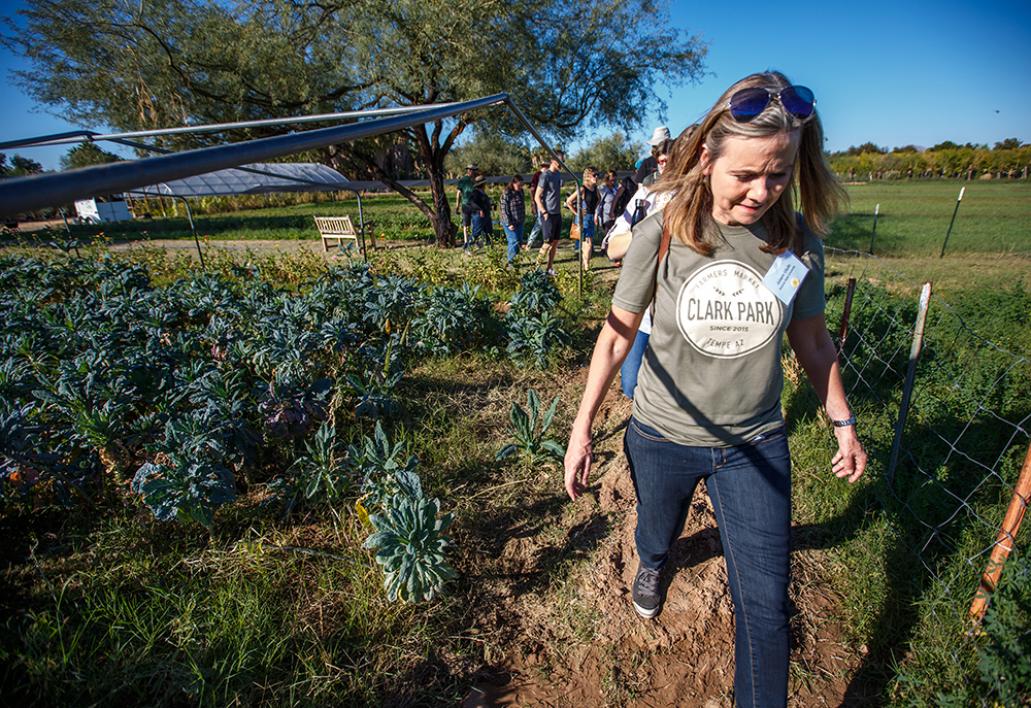
ASU Farm
Cultivating Plants. People. Planet.
About ASU Farm

The idea of ASU Farm originated in spring 2024 with a group of core ASU faculty members, staff, and Maya Dailey from Maya’s Farm in South Phoenix, which is approximately 6 miles southwest from ASU’s Tempe Campus.
ASU Farm aims to realize ASU’s most recent design aspiration: Practice Principled Innovation. Principled Innovation (PI) places character and values at the center of decision-making and expresses ASU’s deep commitment to promote human flourishing within the communities we serve.
See what's new at ASU Farm on their website. You can find all the latest updates and information there.